How To Treat Scabs On Your Scalp
You itch, you scratch, you end up feeling frustrated. Having scabs on your scalp is not only incredibly painful, but also downright embarrassing. Yes, because they are unsightly. But, more importantly, they make other people doubt your personal hygiene. So, what exactly are these pesky little buggers I’m talking about? Let’s take a look…
What Are Scabs On Scalp?
You know that frustrating feeling when your scalp is constantly itchy and you can’t stop scratching it? Well, that’s exactly where the scabs begin to form. The constant scratching damages the outer layer of your skin, which tries to heal itself with the help of blood cells called platelets. The platelets stick together to form a clot that then hardens to create a scab. These crusty scabs can be yellowish, reddish, brown or black in color. Scratching them too much can even cause them to bleed.
So yes, scabs can be annoying, itchy, and painful. And you must be wondering why you even get them on the scalp, of all places. Here are a few possible causes…
What Causes Scabs On Scalp?
There can be tons of reasons why you have scabs on your scalp. While it could be something as harmless as having an oily scalp, it could also be an indication of a more serious condition like eczema or psoriasis. So, you need to zero in on the exact cause of the scabs before you start treating them.
- Oily Scalp: People who have an oily scalp are prone to getting dandruff. This itchy dandruff can make you scratch your head, which, in turn, can cause scabs.
- Seborrheic Dermatitis (Dandruff): Who doesn’t know about the absolute pain that is dandruff? But what a lot of people don’t know is that it is caused by a skin condition called seborrheic dermatitis. The symptoms of this condition include itching, flaking, and scabbing on the scalp. But you have nothing to worry about! Seborrheic dermatitis is not contagious and can be treated easily with over-the-counter drugs or prescription medication (in severe cases).
- Scalp Psoriasis: Psoriasis is a chronic skin condition that occurs when you have an overactive immune system. It causes thick red patches that are covered with silver grey scales and form on certain parts of your body. When these psoriasis patches appear on your scalp, they can form scabs.
- Lichen Planopilaris: If you see red or purple bumps starting to appear on your scalp that form scabs, then you could have lichen planopilaris. Lichen planopilaris is an inflammatory condition that can cause scaling and redness around your hair follicles and, eventually, lead to alopecia (hair loss). The red and purple bumps that are a symptom of this condition can form scabs.
- Ringworm: The term ‘ringworm’ is quite misleading here as it is not an actual ringworm we’re talking about but a fungal infection. This infection (also known as Tinea capitis) affects your scalp and hair shafts and forms circular marks of itchy, scaly skin. These marks usually have flat centers and raised borders that can form itchy scabs on scalp.
- Head Lice: Everyone knows that head lice are the worst and need to go extinct ASAP. But, besides sucking the literal lifeblood out of you and being a pain to get rid of, they also cause a ton of itchiness. And persistently scratching your head can cause you to wound your skin that can then form scabs.
- Shingles: If you (like me) were led to believe that you can get chicken pox only once in your life, I have some bad (OK maybe just moderately unpleasant) news for you. The virus that is responsible for chicken pox can stay dormant in your body and get reactivated to cause shingles. The small yellow blisters caused by shingles can also appear on your scalp and crust over to form scabs.
- Eosinophilic Folliculitis: Now this is a more serious condition that affects people who have HIV/AIDS. Eosinophilic folliculitis is a skin condition that is characterized by itchy, pus-filled sores on your skin and scalp that can form scabs when they heal.
Other Symptoms To Look Out For
Scalp scabs, by themselves, are pretty worrisome to look at. But what’s even more worrying is that they could lead to even bigger problems like infection or hair loss. So, here are a few symptoms you need to look out for along with the scabs:
- White/Yellow Scabs: Applying too much of any thick conditioners, ointments, lotions or hair cream can cause moisture to get trapped within the crust of the scab and develop pus, thus making your scab appear white in color. Yellow scabs, on the other hand, are an indication of infectious pus already formed in the scab that can then develop into sores.
- Hair Loss: If you start losing hair on the spots on your scalp where you can see red and purple bumps and scars, then you probably have the skin condition lichen planopilaris that we discussed earlier.
- Getting Scabs On The Same Spot: Getting scabs on the same spot on your scalp over and over again could be a symptom of melanoma and needs to be checked out immediately.
- Green Pus: It’s generally a cause for concern if there is green pus coming out of your scalp scabs as it is a sign of advanced disease.
So now that you know what symptoms you should look out for along with the scabs on your scalp, let’s take a look at all the easy remedies that you can try out to treat them.
How To Treat Scabs On The Scalp The Natural Way
Since scabs are a sign of your skin being healed, they usually fall off and disappear on their own. However, if they are proving to be bothersome, you can use a few home remedies to quicken the healing process and get rid of the scabs. These scalp scab treatments can be done with ingredients that are already present in your pantry.
How To Treat Scabs On The Scalp
- Warm Compress
- Aloe Vera Gel
- Lemon Juice
- Neem Leaves
- Apple Cider Vinegar
- Oatmeal
- Jojoba Oil
- Tea Tree Oil
- Olive Oil
- CoconutOil
1. Warm Compress
If your scalp scabs are extra itchy and don’t seem to be reducing in size, then a warm compress is your best option. A warm compress can soften your scabs and help the fall off faster.
What You Need
- Towel
- Hot water
- Comb
What To Do
- Soak the towel in hot water.
- Wring out the excess water from the towel.
- Roll up your hair and wrap the towel around your head.
- Leave the towel on for 10-15 minutes.
- Remove the towel and gently comb out the scabs from your hair.
- You will need to do this once daily for a few days until you have gotten rid of all the scalp scabs.
2. Aloe Vera Gel
As you may already know, aloe vera gel is a great gentle and soothing agent. Therefore, it helps reduce the pain and itchiness in and around the scabs on your scalp and also prevents them from getting infected.
What You Need
- Aloe vera leaf
- 2 vitamin E capsules
What To Do
- Remove the gel from the aloe vera leaf.
- Squeeze out the oil from the vitamin E capsules and mix it with the aloe vera gel.
- Apply this mixture onto the scabs on your scalp with your fingers.
- Leave it on for an hour.
- Wash off the mixture with a mild shampoo.
- Repeat this routine twice or thrice a week.
3. Lemon Juice
Lemon juice works great as a treatment as it reduces dryness and itchiness on your scalp. Moreover, it’s great at treating dandruff and ringworm, which are major causes of scalp scabs. However, since it’s a very harsh ingredient, it’s best to mix it with a gentler carrier oil.
What You Need
- ½ teaspoon lemon juice
- 1 tablespoon olive oil
What To Do
- Warn the olive oil in a microwave for a few seconds.
- Mix the lemon juice and warm olive oil.
- Apply and massage the mixture onto your scalp.
- Leave the mixture on for half an hour.
- Wash it off with a mild shampoo.
- Do this thrice a week.
4. Neem Leaves
Neem leaves (Indian lilac) have long proven to be an extremely effective and soothing agent when dealing with any itchy skin conditions. So it comes as no surprise that its antifungal and antibacterial properties work wonders in getting rid of the scabs and preventing the scalp from getting infected.
What You Need
- 10-15 neem leaves
- 2 cup of water
What To Do
- Boil the neem leaves in 2 cups of water.
- Strain out the water and let it cool down.
- Rinse your hair with this neem water every day.
5. Apple Cider Vinegar
Apple cider vinegar is wildly popular for working as a home remedy for a ton of skin and hair related issues. So, of course, it can be used to treat scabs on scalp as well. Besides being antibacterial and antifungal, it also works to balance the pH of your scalp to reduce dryness and itchiness.
What You Need
- 2 tablespoons apple cider vinegar
- 1 cup warm water
What To Do
- Mix the apple cider vinegar and water.
- Pour the mixture onto your scalp.
- Massage your scalp for a few minutes.
- Rinse off your hair with water.
- Follow this routine twice a week.
6. Oatmeal
You must be wondering what a popular breakfast item is doing on this list. Well, you’ll be happy to know that this trusty (albeit bland) breakfast food does wonders for your skin and treating the scabs on your scalp. This is because it soothes irritated skin and is highly moisturizing, thus helping to loosen up the scabs.
What You Need
- 2 tablespoons uncooked oatmeal
- Water
What To Do
- Mix enough water into the oatmeal to form a thick paste.
- Apply this oatmeal all over your scalp and leave it on for 10 minutes.
- Wash it off with a mild shampoo.
- Follow this routine daily.
7. Jojoba Oil
Another great home remedy you can try out in your quest to treat the scabs on your scalp is jojoba oil. Just a few drops of this potent oil are enough to regulate the balance of natural oils on your scalp and, thus, reduce scabs.
What You Need
- Jojoba oil
What To Do
- Massage a little bit of jojoba oil onto your scalp right before going to bed.
- Leave it on overnight.
- Wash it off the next morning with a mild shampoo.
- Follow this routine twice a week.
8. Tea Tree Oil
Tea tree oil is triple threat when it comes to scalp scabs treatment as it has antifungal, antibacterial, and anti-inflammatory properties. It also relieves itching and prevents infection.
What You Need
- 1 teaspoon tea tree oil
- 2 tablespoons almond oil
What To Do
- Mix the tea tree oil and almond oil together.
- Massage the mixture onto your scalp.
- Leave it on for 30 minutes.
- Wash off the oils with a mild shampoo.
- Follow this routine thrice a week.
9. Olive Oil
Pamper your scalp while treating the scabs on it with the help of olive oil. Not only does the hydrating squalene in it moisturize your scalp and help loosen up the scabs, it also nourishes your hair and leaves your hair super soft!
What You Need
- 4 tablespoons olive oil
What To Do
- Warm the olive oil in a microwave for a few seconds.
- Massage the oil onto your scalp. You could also apply it all over your hair if you want.
- Leave it on overnight.
- Wash your hair the next morning with a mild shampoo.
- Repeat this routine thrice a week
10. Coconut Oil
Could any home remedy list ever be complete without coconut oil? It may well be an excellent antibacterial and antifungal agent, but the biggest benefit of coconut oil is that it is insanely hydrating and can get rid of the excess sebum (natural oil) on your scalp. This is why it is used as a topical treatment to soothe the symptoms of psoriasis, especially scalp scabs.
What You Need
- Coconut oil
- Towel
What To Do
- Apply coconut oil all over your scalp.
- Warm a towel by running it under hot water in a sink and wringing out the excess water.
- Wrap the towel around your head and leave it on for an hour.
- Wash off the oil with a mild shampoo.
- Follow this routine thrice a week.
Now that you know all these natural ways of treating scalp scabs, you can say goodbye to this itchy annoyance forever! Just don’t forget to tell us which remedy worked best for you in the comments section below.
Expert’s Answers For Readers’ Questions
How long does it take for a scab to fall off on its own?
Small scabs fall off within 3 to 7 days whereas larger ones could take up to 2 weeks to heal.
Is it okay to pick a scab?
No, you should not pick the scabs (the ones on your scalp and otherwise) as the skin underneath it is not completely healed and you could be exposing the new delicate skin cells to infections.
What does it mean when a scab is black?
There is no need to worry if the scabs on your scalp are black. It simply means that a little more blood than usual flowed out of the wound before it clotted and became a scab.
The post How To Treat Scabs On Your Scalp appeared first on STYLECRAZE.
from STYLECRAZE http://ift.tt/2tPvWPH


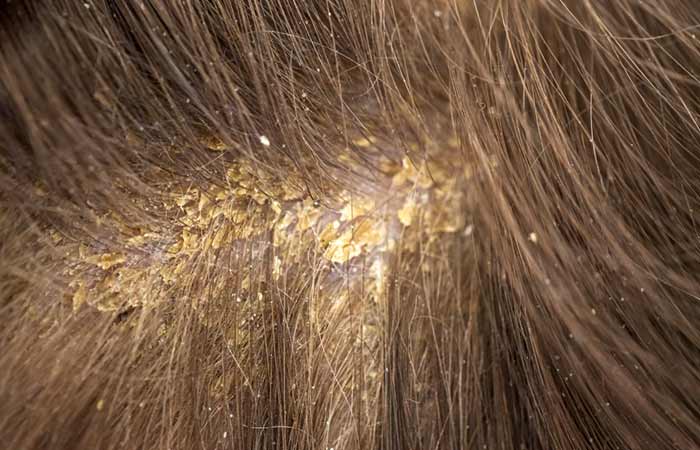
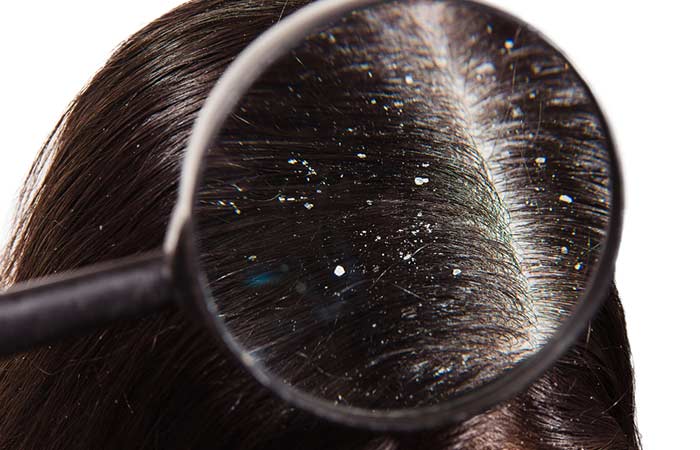
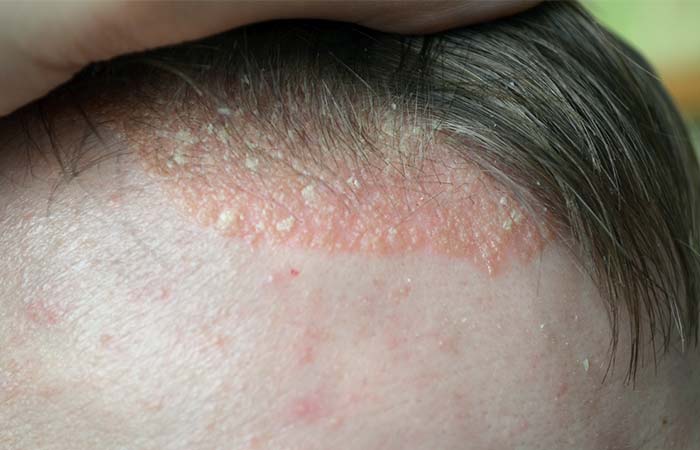
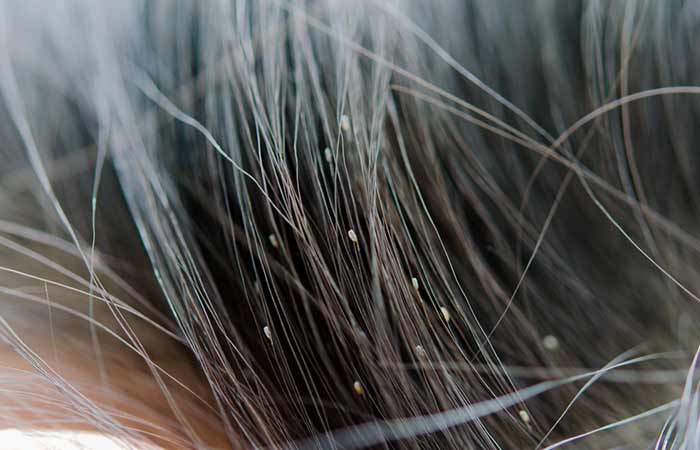
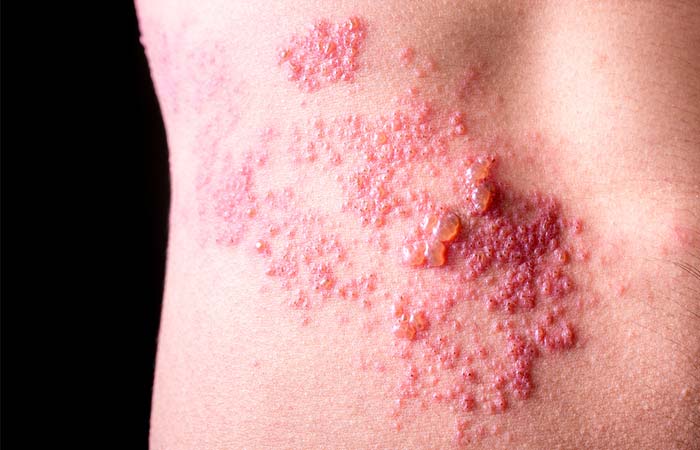
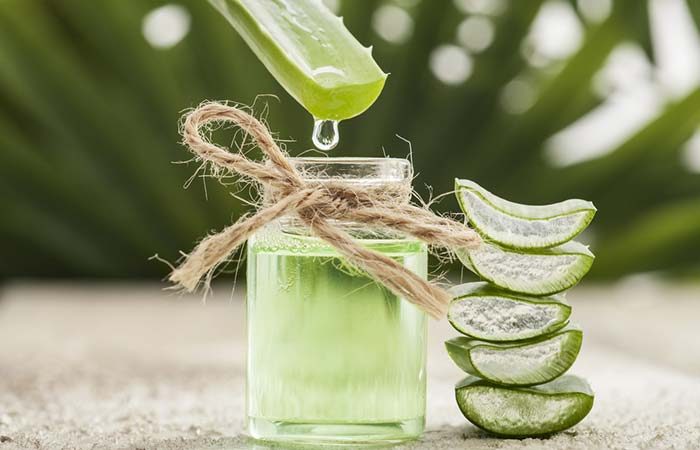
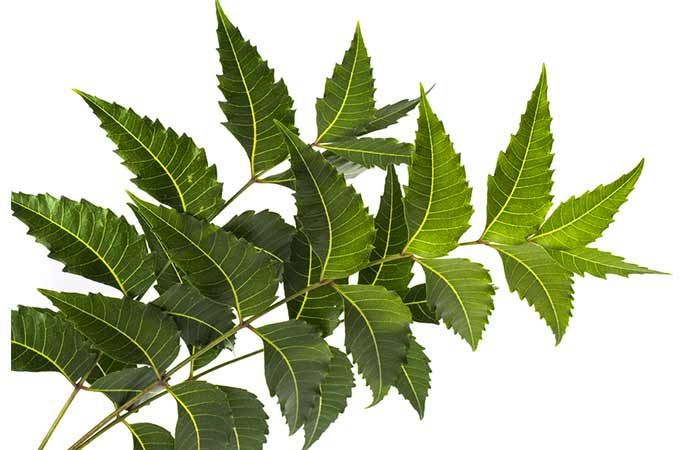
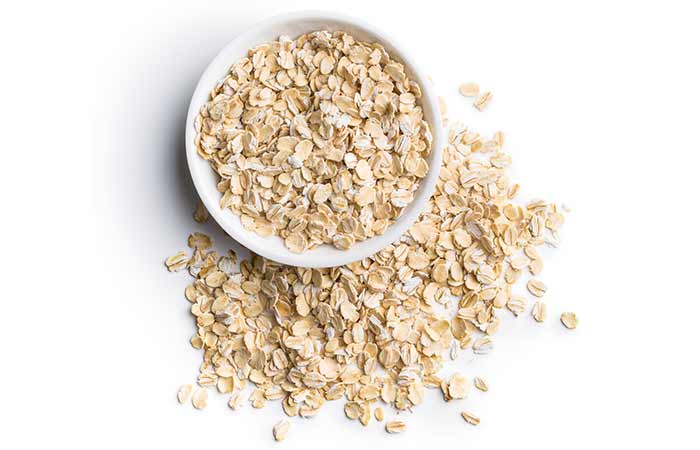
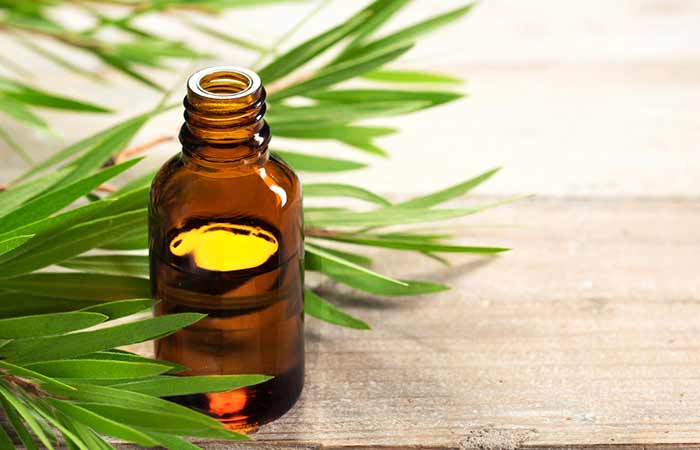
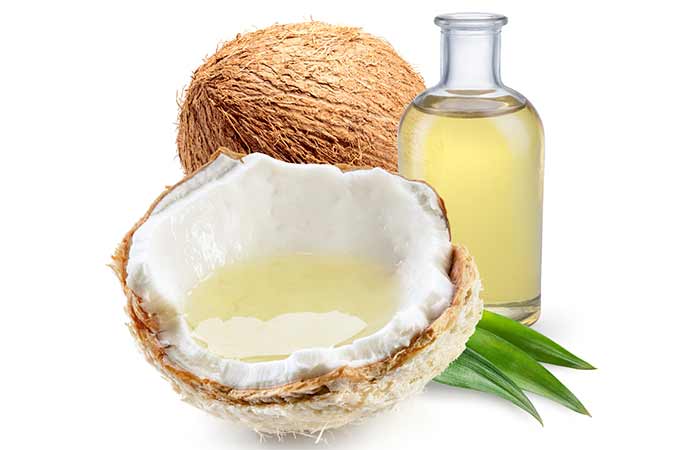
0 comments :
Post a Comment